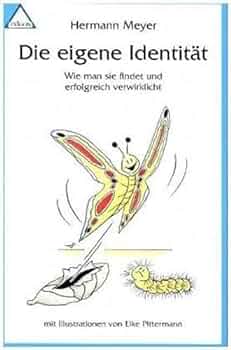Herman Meyer (* 1947) was born in Germany. He is a psychologist and naturopathy and focuses on alternative medicine. He is a partnership and destiny researcher. He founded the Institute of Psychological Astrology in Munich, Germany.
He has written many books in German, among them Your Own Identity (Die Eigene Identität), Laws of Destiny (Gesetze des Schicksals) , Liberation of Forced Destiny (Befreiung vom Schicksalszang – Astropsychotherapy), Astrology and Psychology, and Death is not a Coincidence (Der Tod ist kein Zufall).
In this book Hermann Meyer combines his profound knowledge about the relationship of human behavior with the knowledge of holistic cybernetics for success. He explains in plain language the multiple causes of success and failure in life.
Herman Meyer maintains in this book, that our identity should be taken as a guide for our own true path and that negative fate only means that we have strayed from this path. He sees fate as a blind alley, that takes us away farther and farther from our own identity, or it indicates a detour.
Almost all people are on these false starts and detours, rarely is anybody successful in recognizing their own identity and to live accordingly.
Meyer defines the criteria for Good and Bad as identical with the “learned” conscience or with the Ego. He sees the Ego as an acquired psychic authority based on childhood impressions, education, influence, and other environmental factors.
People who are good in the conventional sense determined by others and society’s rules are in reality bad to themselves (compare with Broken Open).
He claims, that the unconscious can easily make a distinction between real and unreal and he says that it is our responsibility to develop our abilities and skills.
He believes, that whoever wants to become an individual, must offend, otherwise we will remain a puppet of the norms.
Hi gives a few examples of the true nature of people: Joy in nice conversations, sumptuous food, need in mental warmth and love, safety, cuddling, own area, fun in sport, play, adventure of life, independence, creativity, research, analysis, have his/her own taste, goal and dreams.
He provides concrete example for expressions of identity:
Identity in sports
Identity in feeling
Identity in action
Identity in the creative
Identity in lifestyle
Identity in the representation of outward
Identity in relation to place of residence and neighborhood
Identity in terms of furnishing
Identity in children’s education
Identity in the diet
Identity in flavor
Identity of the erotic
Identity when choosing a partner
Identity in the form of relationship
Identity in sexuality
Identity in the sexual fantasy
Identity on the spiritual
Identity in the philosophy of life
Identity in professional
Identity in the leisure
Identity in the choice of hobbies
Identity in the choice of friends
Identity in wishes and dreams
